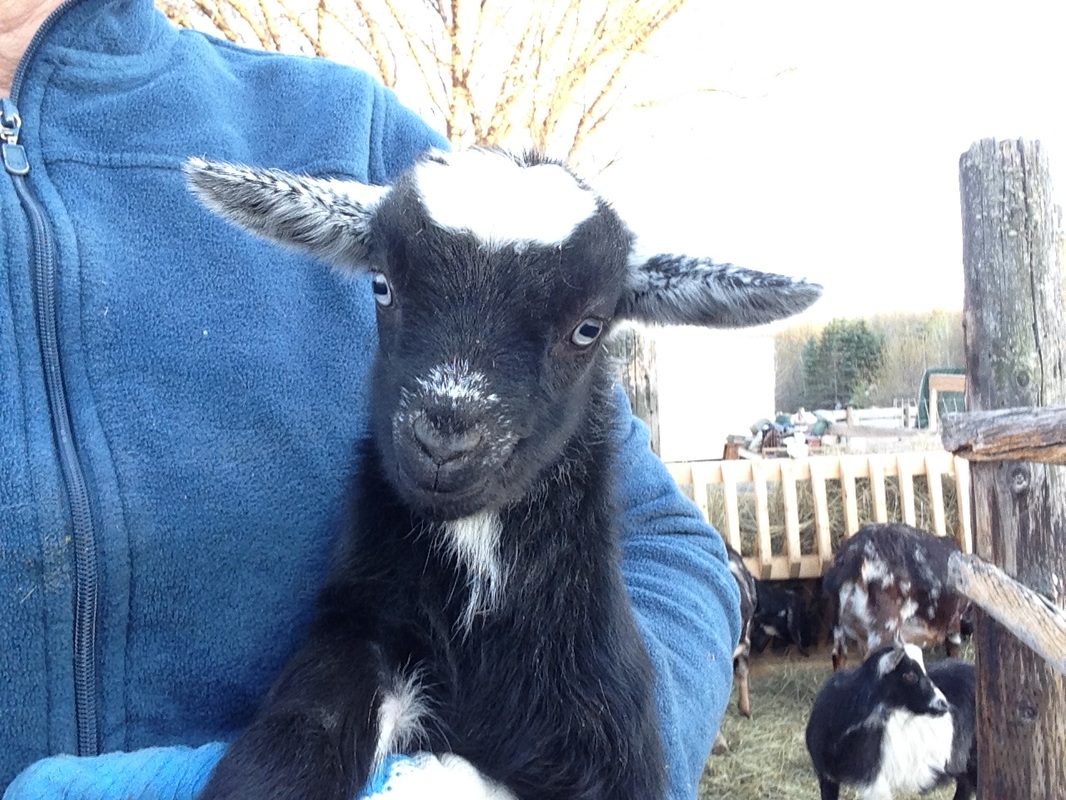
I have tried Kiko meat goats, Nubian dairy goats, Cashmere, which is basically a Spanish goat that grows a heavy down coat in the winter, Angora goats and my favourites, Nigerian Dwarfs.
Here is what I have to say about the breeds.
If you like soft mohair, Angora goats are very dual purpose, however; I found that the mothering instincts and a few others, like where to forage for food, were bred out of them in favour of fibre. One of my Angoras was a good mother though, so I kept her and she is better at following the herd to eat with them. The kids take a long time to gain confidence to go with the herd though, so she does not go far for the first two months. Angoras need to be shorn twice yearly or the fibre will mat into a terrible useless mess and have to be cut off anyhow. They do not shed. Angora goat meat is considered a delicacy in the Middle East and is quite sought after. The animals do flesh out very well and have lots of milk. The meat, I must say, is fabulous.
Cashmere goats are basically good hardy dual purpose goats, good mothers, have great instincts and will naturally shed the cashmere if it is not brushed or combed from them. I have not eaten cashmere goat meat, only Angora, so I cannot comment on that.
Kiko goats are big sturdy goats originating from New Zealand. If my Kiko buck does not sell, I have a mind to breed him to the Angora to see what sort of goat is produced. It should have fibre like Pygora (Pygmy/Angora) or Nigora (NIgerian/Angora) crosses which is very spinnable, yet sheds naturally if not harvested. There are 3 grads to the cross fibre, A, B and C according to the curl and guard hairs present. The Kiko and the Angora have good milk and the Kikos are great mothers. That cross might be worth looking into . The Kiko doe I have was sold to me as a breeding doe but she has fish teats or nipples teats that split into two nipples, which at first confused the kids, but in no time they got the hang of nursing. It is a hereditary trait and the bucklings should be sold as meat goats only.
I did have only two Boer goats and did not find them particularly appealing for some reason. The buck was big and pushy and the doe was not very friendly having come from a commercial herd.
The Nubians are good mothers, gentle, personable and excellent milkers, but hard for me to keep healthy. I am not sure it is just these two Nubians or all Nubians or because I live where winter is very cold. That is the time they seem to go downhill fast, though they do pick up on pasture in the summer. I would try them again if I lived somewhere warmer just for their sweet natures.
But, my favourites are the Nigerians. They are smaller, smarter, more playful, have triplets or quads and can raise them all with their copious amounts of rich milk. My does consistently have quads and although they can raise them all, I usually sell two as bottle babies, because it is too hard on the mother to manufacture milk for four babies and it takes her body condition down. One of my does, Daphne, can easily raise 3 kids though, without losing condition. They are easy to keep, small to handle, friendly and come with blue eyes sometimes. The true Nigerian Dwarf has a long lean body that is well proportioned so that if you looked at a picture of the goat without surrounding to verify the size, you could imagine the goat to be regualar sized, unlike true Pygmy goats, which to me look like tanks on short legs. I love them too, but they are hard to find. What people call Pygmy goats are nowhere near what they really are. To the uneducated, any small goat is a Pygmy.
I am trying to sell all the goats except the Nigerian Dwarfs to cut down my workload and feed costs. Because they are smaller, they eat less of course. They do grow a double coat for winter too, which keeps them warmer, so they eat less than a single coated animal who must eat to stay warm. The Angora may be the last to leave or maybe she will stay. Bred to a Nigerian Dwarf, her offspring may be blue eyed, but always will be white and fluffy since those genes are stronger. I also have two Nigerian/Nubian cross girls coming and I am hoping they will do better than the Nubians with the input of Nigerian Dwarf genes.
If you are starting out and don't know which to try, Nigerians are easier to keep in because of their smaller size, and they eat less for the same reason, plus they are a true dairy goat and provide rich milk, though of course less than a large dairy goat does. Besides, they are just so darn cute! My choice for sure...maybe they will be yours too!

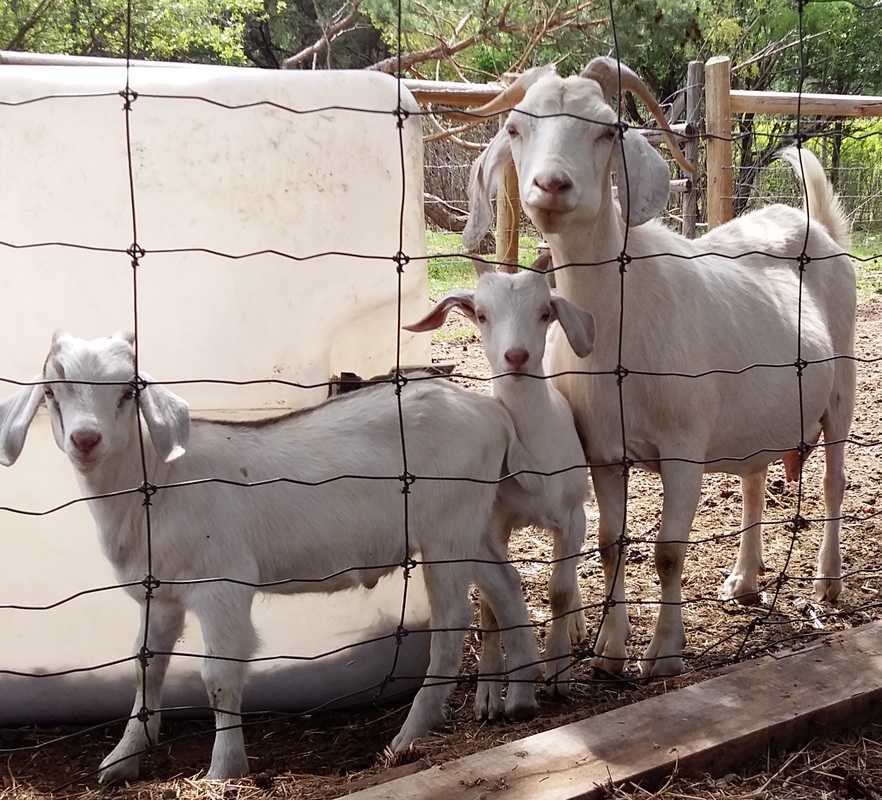
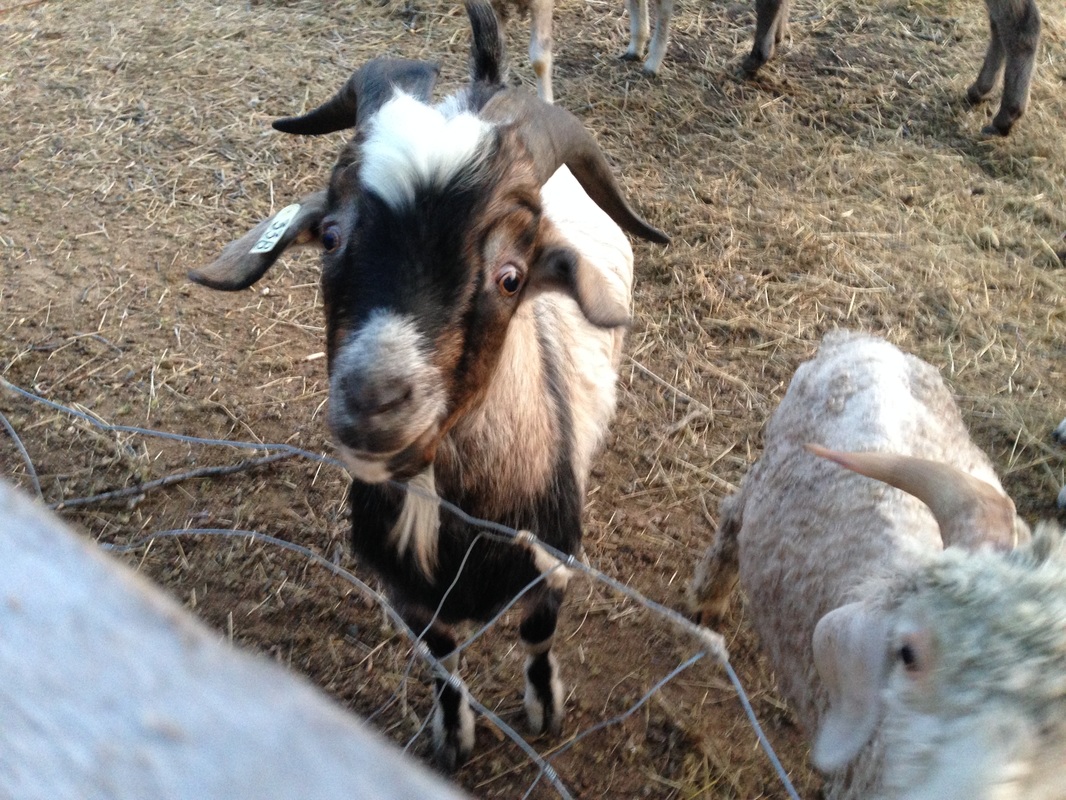
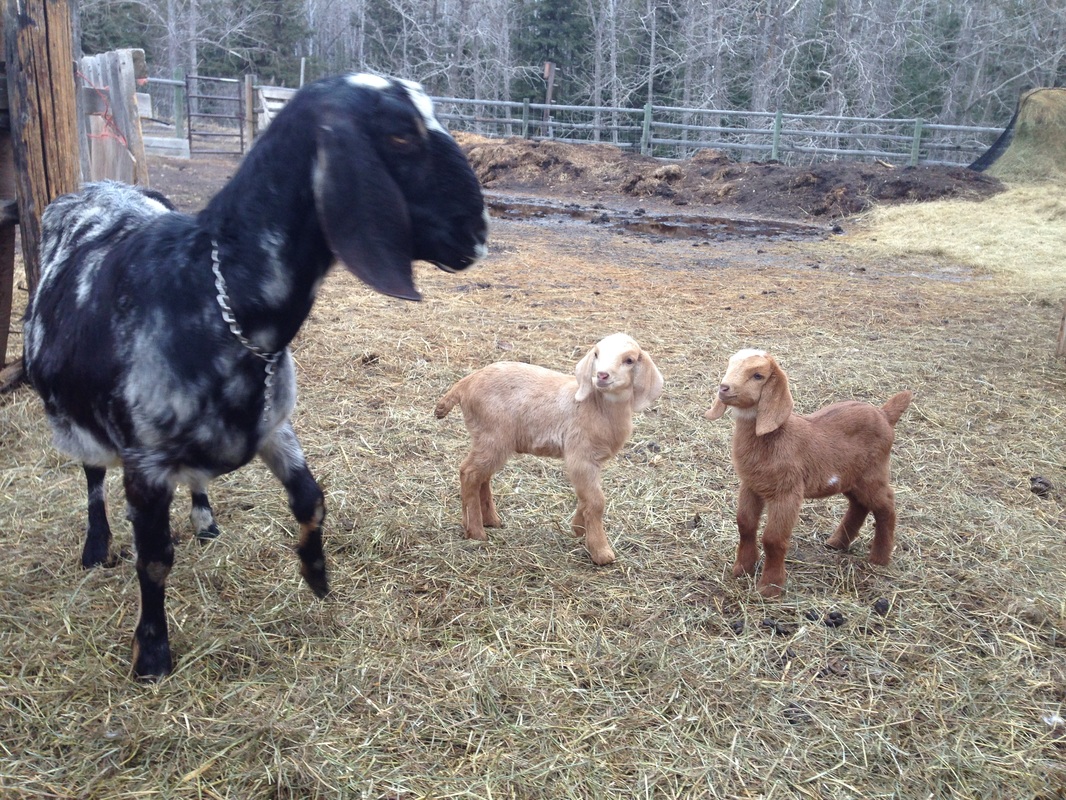
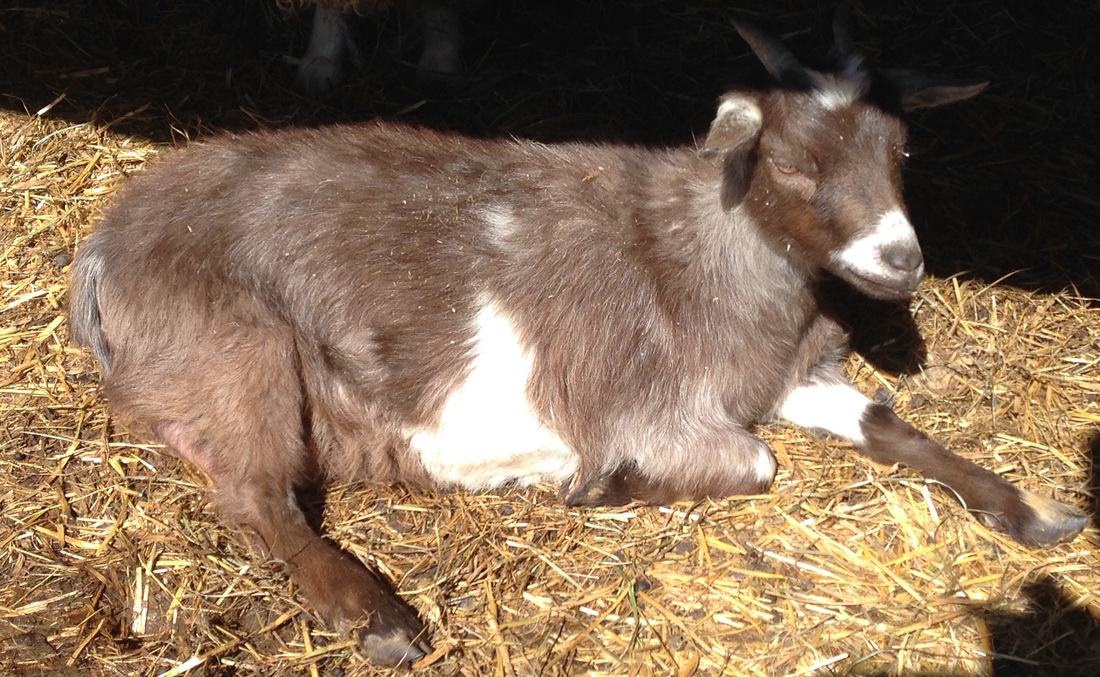
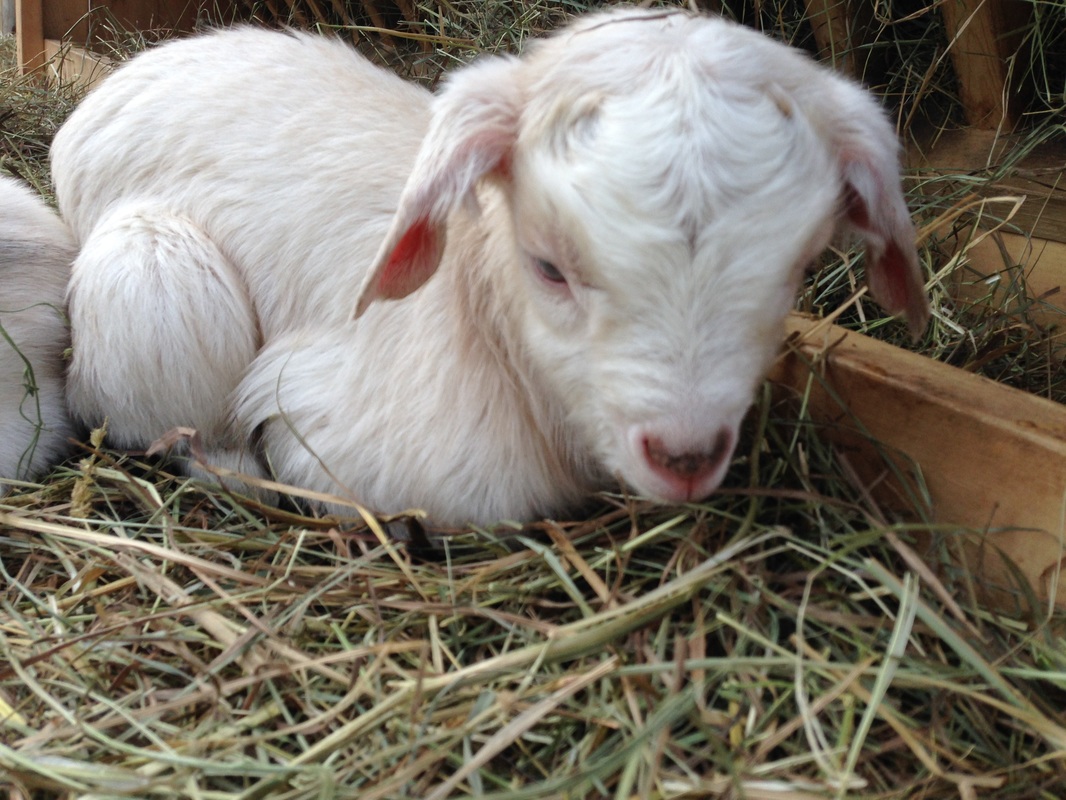
 RSS Feed
RSS Feed